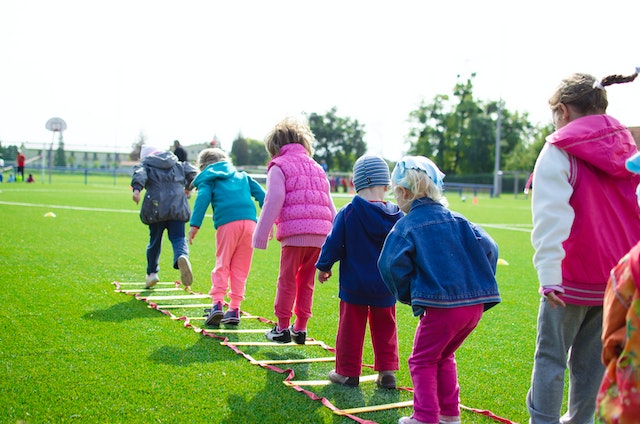What is important to understand when it comes to providing a safe and loving environment to a child or young person with extra support needs due to a disability?
Nicola Fleming, Foster Carer and Geoff O’Donnell, Care Visions Fostering
Children come into foster care for a number of reasons, but generally it comes down to that their needs were not able to be met by their families and that level of external care and support for the child is now required. We know that all good Foster Carers are caring individuals, with the life experience, time and stability, to offer a child in need a supportive home environment. We are lucky to work with many of them. But what is it like when a child or young person has additional support needs on top of what is already required? We want to give some help on things to understand when it comes to fostering and caring for children with disabilities.
When it comes to fostering and children with disabilities there is not one size fits all advice. As you probably know, disabilities and the level support required for those living with them ranges hugely. Like any of us, a child or young person could be living with a hearing or site impairment, physical disabilities, a mental health disability or a developmental support requirement. All of these need to be supported appropriately, allowing the young person or child to thrive in the best environment for them. Specialist Training and support received for Foster Carers will help with preparation and ongoing care, however, there are some things that will always need to be considered and to be at the forefront of the mind for anyone who is caring for a child or young person with those extra support needs.
You need to look at the full picture of a disability, what level of support is needed and if you can provide that support. Some children or young people require different levels of support and some disabilities require a higher level of support. No two children are the same and that is also the case when it comes to children that might have the same disability. If you care for two children with autism, even though they might have the same diagnosis, the support that you give them will vary. That is when input from Supervising Social Workers connected with your fostering agency is crucial. This is something which needs to be explored and considered even from the very start in the matching process.
It’s important to look to the future. Levels of support can change as a child gets older, it might mean that a higher level of support could be required or less hands on help is needed if a child becomes more independent.

"No two children are the same and that is also the case when it comes to children that might have the same disability."
What support looks like when it comes in the context of Fostering and Children with Disabilities?
With some children that require a high level of supervision, important considerations need to be made. It might be the case that modifications need to be made to the home or that you fully adjust your routines to be on hand to support a child in your care with all aspects of their daily life. You will, of course, be fully trained and supported to help make such changes.
Depending on the child or young person, there are situations where constant hands-on care to meet their basic needs is indeed required. Although it is very time consuming to do everything for a child that they cannot do for themselves, it can be even more rewarding when you meet those significant milestones and goals.
In an example shared by Nicola, Caring for an Autistic Child, “Supporting my child with their basic needs is an on-going process. Although there are huge rewards when meeting goals, when it comes to their greater independence, support is still required for everything else around it.”
“General experience in caring for people with a disability or caring for a young person is a good foundation for this type of Fostering. You will already have fundamental skills and are a caring, compassionate person. Fostering a child or young person with additional support needs is something which can be done and, if you allow your heart to open just a little more to be able do this, it will start to become natural. You know your own ability and if you feel that have that little bit extra to give the rewards in making a difference to a young person or child who needs it are huge. Your Supervising Social Worker knows your ability, capacity and would not push you more than would be in your best interests, or most importantly, the child’s. So if this is something you feel that you would like to do, it is important to have that conversation.”
You can request more information to help you start your own fostering journey via this link.
